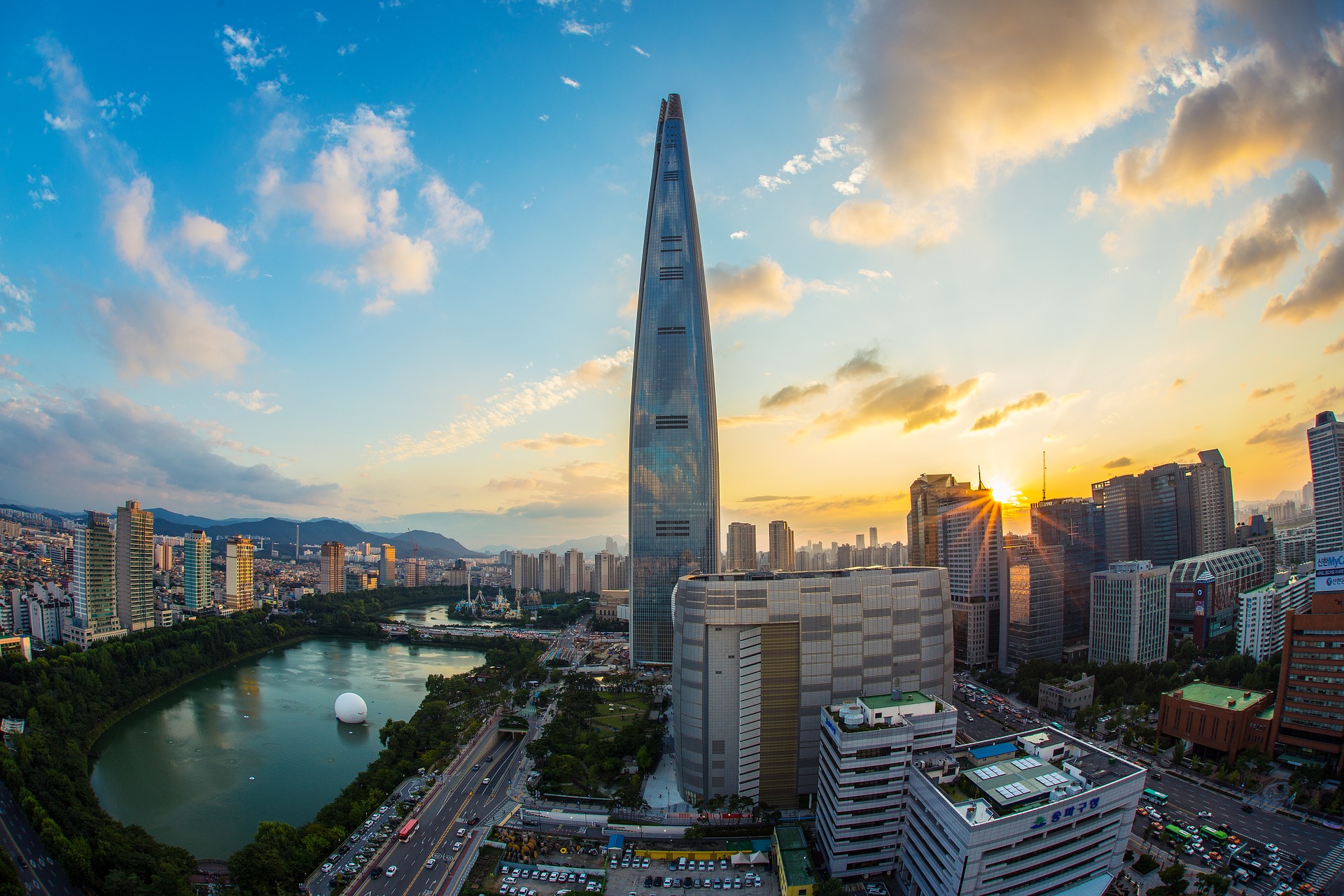Despite the Omicron variant-related risks, the growth momentum of the South Korean economy appears to be solid at the start of 2022. Asia’s fourth-largest economy has recovered from a coronavirus-related decline, recording an annual growth of 4% in 2021, its strongest growth since 2010. According to the Bank of Korea (BOK), economic growth was aided by increases in exports, corporate capital investment and increased construction activity in 2021.
Exports surged 25.8% for the full year, thanks to a pandemic-induced surge in tech investment, boosting the value of shipments to a yearly high of $644.5 bn, exceeding a previous high of $605 bn in 2018. Outbound shipments of batteries, bio, agriculture and fishery commodities, and cosmetics accounted for about half of the increase in exports, according to data from the Ministry of Trade, Industry and Energy. Semiconductors contributed for over 20% of South Korea’s exports, while automobiles made for about 7% of the country’s total exports.
Recent Covid surge dampens economic outlook
While the South Korean economy appears to have weathered the last Covid waves quite well, the unprecedented spread of Covid-19 cases due to the Omicron variant poses a threat to the economy’s growth trajectory. In February the country for the first time reported over 50,000 daily coronavirus cases. The health authorities are concerned that there could be 170,000 daily cases by the end of this month. Therefore, the government is looking at adjusting the already toughened social distancing curbs again.
Given the current environment coupled with the US and China’s economic slowdown and spike in inflation, the International Monetary Fund (IMF) on January 25 slashed its economic growth outlook for South Korea to 3% for 2022, from 3.3%.
South Korea’s inflation rate came in at 3.6% YoY as of January 2022, which is much higher than the central bank’s target of 2%. The Bank of Korea expects inflation to remain above 3% for some time before weakening in the second half of 2022.
To combat rising inflationary pressures, the BOK hiked its benchmark interest rate from 1.0% to 1.25% on January 14 and indicated that it may tighten further to more than 1.75% this year. The BOK has already raised its benchmark rate three times since August 2021.
Economists disagree on export prospects
While the strong exports in the second half of 2021 have helped South Korea recover from the coronavirus-related economic decline in 2020, economists are divided on whether the positive trend can continue.
According to OCED, the export growth is projected to remain robust on the back of strong global demand for major items such as IT products, machinery and petrochemicals.
Lloyd Chan, Senior Economist at Oxford Economics, remains cautious about export momentum in the first quarter of the year. “But we expect global demand for South Korean exports, especially for semiconductors and other IT products, as well as a gradual improvement in global supply conditions, especially in the second half of 2022, will help underpin export momentum.”
Meanwhile, Nomura’s economists disagree. The Japanese financial holding company expects South Korea’s economic growth to slow “significantly” this year, led by weakening export growth and stagnant domestic consumption. In response to rising inflation and slowing growth, Nomura predicts fiscal spending to increase again this year, amid tighter monetary policy.
According to an annual assessment by the IMF, Korea’s authorities have been proactive troughout the pandemic in providing support for troubled economic sectors. “These policies have helped contain corporate defaults and build up corporate sector cash balances.”
For the 2022 budget, the parliament in December approved a record $515 bn spending proposal. Most recently the government announced to top up the support up by issuing about $9.5 billion in bonds to support small businesses in dealing with the new virus outbreak. The bill is expected to breeze through the National Assembly ahead of the March 9 presidential election.
Ma Tieying, Economist at DBS Bank, mentioned that the upcoming presidential election is expected to have profound implications for South Korea’s major economic policies for the next five years. “A ruling party’s victory will likely ensure policy continuity after election,” she worte.
In the case of a ruling party win, the DBS Bank economist expects the BOK to proceed with further rate hikes in the second half of this year.


 Australia
Australia China
China India
India Indonesia
Indonesia Japan
Japan Malaysia
Malaysia Philippines
Philippines Singapore
Singapore South Korea
South Korea Taiwan
Taiwan Thailand
Thailand Vietnam
Vietnam







